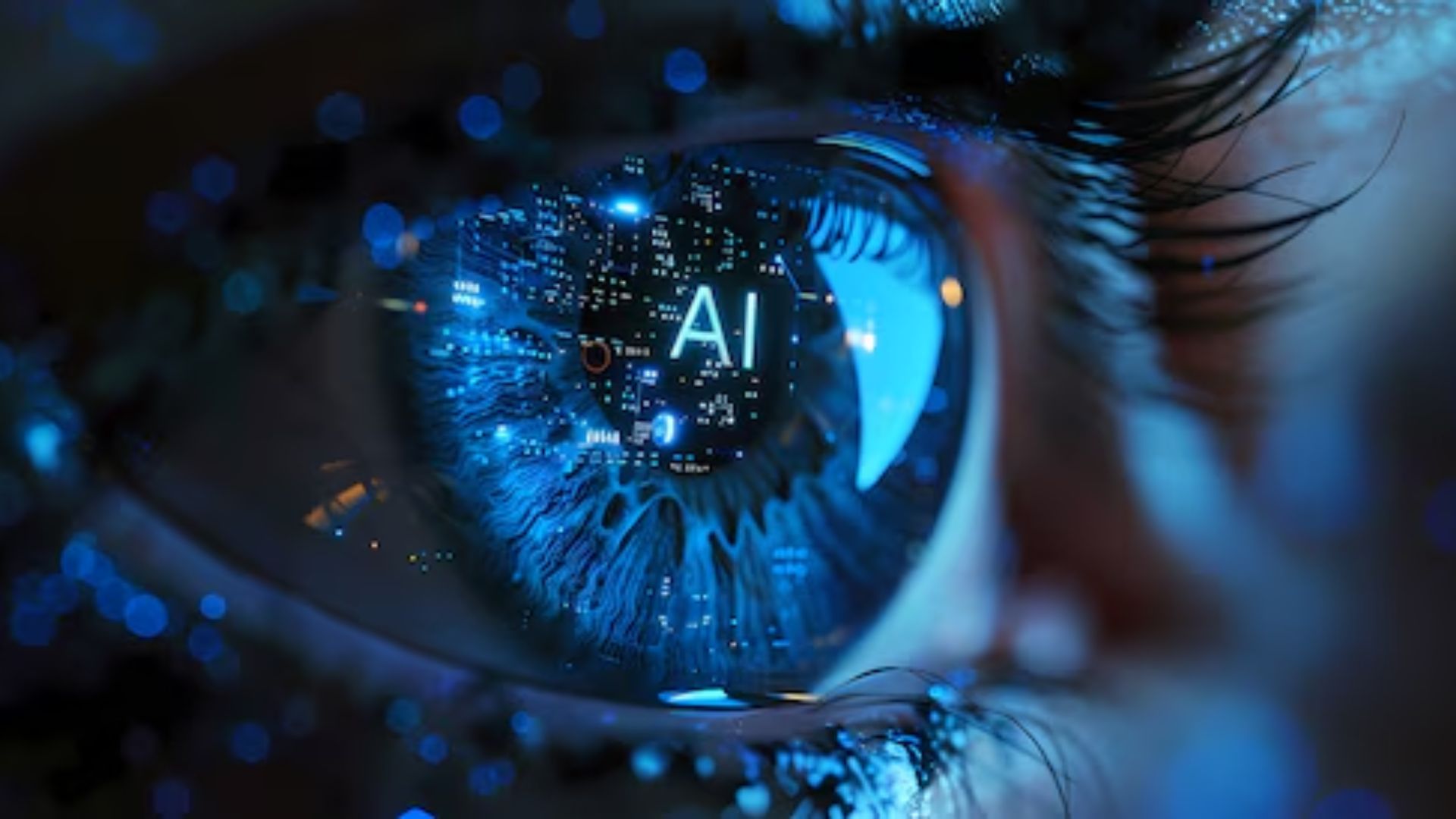
Related Articles

Artificial Intelligence
Praveen Joshi
July 5, 2025
|
|

Artificial Intelligence
Praveen Joshi
July 3, 2025
|
|

Artificial Intelligence
Praveen Joshi
June 30, 2025
|
|

Artificial Intelligence
Praveen Joshi
June 20, 2025
|
|

Artificial Intelligence
Praveen Joshi
June 15, 2025
|
|

AI Tech Solutions
Praveen Joshi
June 10, 2025
|
|

Thought Leadership
Praveen Joshi
June 7, 2025
|
|

Artificial Intelligence
Praveen Joshi
June 7, 2025
|
|

IT Outsourcing
RSK BSL Tech Team
May 23, 2025
|
|

AI Tech Solutions
RSK BSL Tech Team
May 19, 2025
|
|

Software Development
RSK BSL Tech Team
May 16, 2025
|
|

Software Development
RSK BSL Tech Team
May 13, 2025
|
|

IT Outsourcing
RSK BSL Tech Team
May 4, 2025
|
|

Mobile Application Development
RSK BSL Tech Team
April 30, 2025
|
|

Software Development
RSK BSL Tech Team
April 27, 2025
|
|

Hire resources
RSK BSL Tech Team
April 24, 2025
|
How Are Artificial Intelligence Services Redefining Innovation?
Artificial Intelligence (AI) is quickly transforming businesses across industries. By performing repetitive tasks, analyzing data patterns, and making predictions, AI opens new paths for efficiency and even growth.
As businesses seek more advanced, data-driven solutions, AI solutions companies are redefining the pace and style of innovation. Here we will explore how artificial intelligence services are becoming essential to modern business strategies and how AI shapes industries and promotes change.
Impact of AI on Modern Innovation
If we look at today’s business environment, innovation means finding smarter ways to solve problems, cut costs, and boost productivity. Traditional methods, while effective, often can’t keep up with the demands of a data-driven economy.
Intelligent AI solutions bring a fresh perspective, allowing companies to streamline operations, enhance customer service, and make informed decisions quickly.
Automation of Repetitive Tasks
AI has transformed repetitive tasks by automating processes that once required significant time and resources. For instance, data entry and document processing can be managed by AI, allowing employees to focus on more complex tasks.
This is particularly helpful for industries like finance, healthcare, and logistics, where manual data handling is common. AI-driven automation saves time, reduces errors, and improves overall efficiency.
Better Customer Experience
In the digital age, customer expectations are high, and they seek immediate support and personalized interactions. AI helps businesses meet these expectations through intelligent chatbots, which provide instant responses and can handle basic queries.
This not only enhances customer satisfaction but also allows human representatives to focus on resolving complex issues. AI-powered chatbots improve customer experience while keeping operational costs in check.
Data-Driven Decision Making
One of the biggest challenges companies face today is extracting actionable insights from vast amounts of data. AI makes it easier to gather, analyze, and interpret data in real-time.
By using AI tech solutions, businesses can identify patterns, predict trends, and make decisions based on evidence rather than intuition. This approach benefits sectors like retail, healthcare, and manufacturing, where quick and informed decision-making is critical to staying competitive.
AI Applications Across Industries
The applications of AI go beyond basic automation. Different industries are harnessing the power of AI to achieve unique goals and solve complex problems.
Healthcare
In healthcare, AI has introduced possibilities for faster diagnoses and personalized treatments. By analyzing medical data, AI can predict patient outcomes and recommend treatments, enhancing patient care.
Additionally, AI in medical imaging allows for more accurate diagnosis of conditions like cancer by identifying abnormalities that might be missed by human eyes.
Retail
The retail industry benefits from AI’s ability to provide personalized recommendations and optimize inventory management. By analyzing customer behavior and sales data, AI helps retailers offer products that align with consumer preferences, resulting in higher sales.
Inventory management becomes more efficient as AI predicts demand and suggests restocking times, preventing both overstock and stockouts.
Manufacturing
Manufacturing has embraced AI solutions companies to improve quality control, predict equipment failures, and manage supply chains. AI-driven sensors and cameras can detect defects in products during production, maintaining quality standards.
Predictive maintenance, another significant use, helps anticipate machinery issues before they cause downtime, saving both time and money.
Financial Services
Financial firms leverage AI to analyze large volumes of transaction data, helping detect fraud and ensure regulatory compliance.
AI also enables algorithmic trading, where it quickly identifies profitable trading opportunities based on market patterns. Personalized banking services, powered by AI, offer tailored financial advice and solutions based on individual spending habits.
Key Benefits of AI in Business Innovation
AI provides numerous benefits that go beyond operational improvements. Some of the significant ways that AI helps businesses to stay innovative are mentioned below.
Improved Efficiency and Productivity
With AI handling time-consuming tasks, employees can focus on strategic goals rather than routine work. This shift not only enhances productivity but also fosters innovation as employees spend more time on creative problem-solving.
Risk Management
AI can predict potential risks by analyzing patterns in historical data. In finance, for instance, AI helps detect fraud by identifying unusual spending patterns. In manufacturing, predictive maintenance anticipates equipment failures, minimizing the risk of costly disruptions.
Personalization at Scale
AI allows businesses to personalize customer interactions at scale, which is essential in today’s customer-centric world. By analyzing data from previous purchases, browsing behavior, and feedback, companies can tailor recommendations and promotions to individual customers, increasing loyalty and sales.
Continuous Learning and Adaptation
One of AI’s unique strengths is its ability to learn and adapt over time. Machine learning models continuously refine their predictions and become more accurate with each iteration. This adaptability makes AI a powerful tool for keeping up with changing market conditions and evolving customer preferences.
Common Challenges in Using AI and How to Overcome Them
Despite its advantages, AI adoption comes with challenges. Implementing intelligent AI solutions requires a clear understanding of data privacy, ethical considerations, and the potential need for specialized talent.
Data Privacy and Security
AI systems rely heavily on data, which often includes sensitive information. Businesses need to ensure that their AI solutions comply with data protection regulations to maintain customer trust.
High Implementation Costs
Although AI promises long-term savings, initial costs can be high, particularly for small businesses. Building and deploying AI models requires resources and expertise, which may be challenging for companies with limited budgets.
Talent and Skill Gaps
The demand for AI experts is high, and companies may struggle to find the right talent. Businesses may need to invest in training and development programs to upskill their existing workforce, especially in data science and machine learning.
How can AI improve innovation in the future?
As AI continues to evolve, its role in shaping business innovation will only grow. Emerging technologies like natural language processing (NLP), computer vision, and autonomous systems will create even more opportunities.
For instance, NLP will make AI interactions more conversational, while computer vision will expand AI’s capabilities in visual analysis. Autonomous systems could lead to AI-powered factories and driverless transportation, taking automation to a new level.
How AI Empowers Small and Medium Enterprises (SMEs)
While large corporations have long invested in AI, SMEs are now beginning to realize the benefits of AI tech solutions. Customized, scalable AI solutions enable smaller businesses to automate tasks, improve decision-making, and compete in their markets. Many AI providers, like RSK BSL, offer tailored solutions specifically for SMEs, focusing on affordability and ease of integration.
Conclusion
The transformative power of artificial intelligence services is clear. From automating routine tasks to enabling data-driven insights, AI is reshaping how businesses approach innovation. As more industries recognize the potential of intelligent AI solutions, the future of business looks increasingly efficient, data-centered, and customer-focused.
RSK Business Solutions is committed to delivering cutting-edge AI solutions that drive your business forward. To explore how we can support your AI journey, check out RSK-BSL AI Solutions.
Praveen Joshi
Praveen is a seasoned IT Solutions Leader and Director at RSK Business Solutions, a technology-driven IT Consulting Company that specializes in Bespoke Software Development, Agile Consulting, Mobile App Development, Smart Sourcing, and much more. For the last 17 years, he has been delivering quality custom IT solutions that help businesses achieve their goals.

 Share
Share Post
Post Tweet
Tweet Copy
Copy


